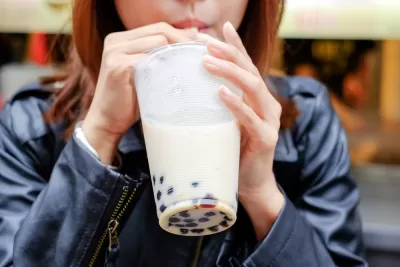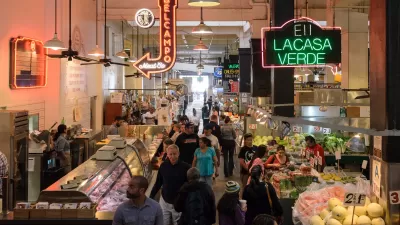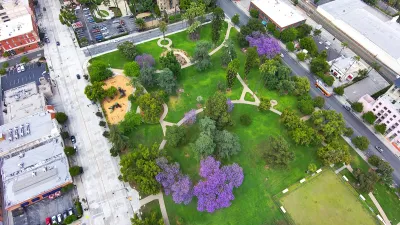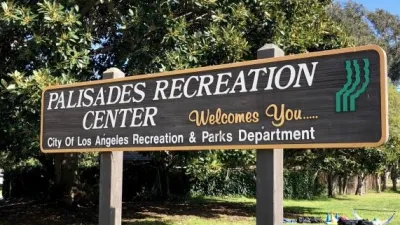The Chinese American Museum in L.A. currently features an exhibit exploring the drink’s journey from the cassava root in South America, to the tapioca balls in the Taiwanese confection, and back to the U.S. as a symbol of Asian American identity.

Boba tea or bubble tea is a tea-based drink that originated in Taiwan in the early 1980s. Taiwanese immigrants brought it to the U.S. in the 1990s, initially in California through regions like Los Angeles County, but the drink has also spread to other countries where there is a large East Asian population. Bubble tea most commonly consists of tea accompanied by chewy tapioca balls ("boba" or "pearls"), but it can be made with other toppings as well, such as grass jelly, aloe vera, red bean, or popping boba.
In this article, Janaya Williams writes about a new exhibit at the Chinese American Museum in Los Angeles called “the boba show: history, diaspora, & a third space” which explores the drink’s journey from the cassava root native to South America, to the tapioca balls in the Taiwanese confection, and back across the ocean to the U.S., where has also become a symbol of identity and culture for Asian Americans. Cal State University, Los Angeles Assistant Professor of Asian American Studies Juily Phun is the exhibit’s co-curator. She shares that boba helped young Asian Americans like her find a community in Southern California areas like the San Gabriel Valley.
Symbolically housed in the oldest and last surviving structure of Los Angeles’ original Chinatown, the Chinese American Museum embodies a cultural and physical link to the past, as well as a promising point of entry for the city’s multicultural future. Opened in December 2003 after 20 years of dedicated community and civic leadership and support, CAM’s presence at El Pueblo de Los Angeles Historical Monument—a 44-acre public park honored as Los Angeles’ “birthplace” and the site of its original Chinatown—reflects the vibrant development of an immigrant history that began over 150 years ago when the first major Chinese settlement was documented in Los Angeles.
FULL STORY: Communi-tea: Boba is more than a drink at SoCal art show

Alabama: Trump Terminates Settlements for Black Communities Harmed By Raw Sewage
Trump deemed the landmark civil rights agreement “illegal DEI and environmental justice policy.”

Study: Maui’s Plan to Convert Vacation Rentals to Long-Term Housing Could Cause Nearly $1 Billion Economic Loss
The plan would reduce visitor accommodation by 25% resulting in 1,900 jobs lost.

Planetizen Federal Action Tracker
A weekly monitor of how Trump’s orders and actions are impacting planners and planning in America.

Waymo Gets Permission to Map SF’s Market Street
If allowed to operate on the traffic-restricted street, Waymo’s autonomous taxis would have a leg up over ride-hailing competitors — and counter the city’s efforts to grow bike and pedestrian on the thoroughfare.

Parklet Symposium Highlights the Success of Shared Spaces
Parklets got a boost during the Covid-19 pandemic, when the concept was translated to outdoor dining programs that offered restaurants a lifeline during the shutdown.

Federal Homelessness Agency Places Entire Staff on Leave
The U.S. Interagency Council on Homelessness is the only federal agency dedicated to preventing and ending homelessness.
Urban Design for Planners 1: Software Tools
This six-course series explores essential urban design concepts using open source software and equips planners with the tools they need to participate fully in the urban design process.
Planning for Universal Design
Learn the tools for implementing Universal Design in planning regulations.
Caltrans
Smith Gee Studio
Institute for Housing and Urban Development Studies (IHS)
City of Grandview
Harvard GSD Executive Education
Toledo-Lucas County Plan Commissions
Salt Lake City
NYU Wagner Graduate School of Public Service





























